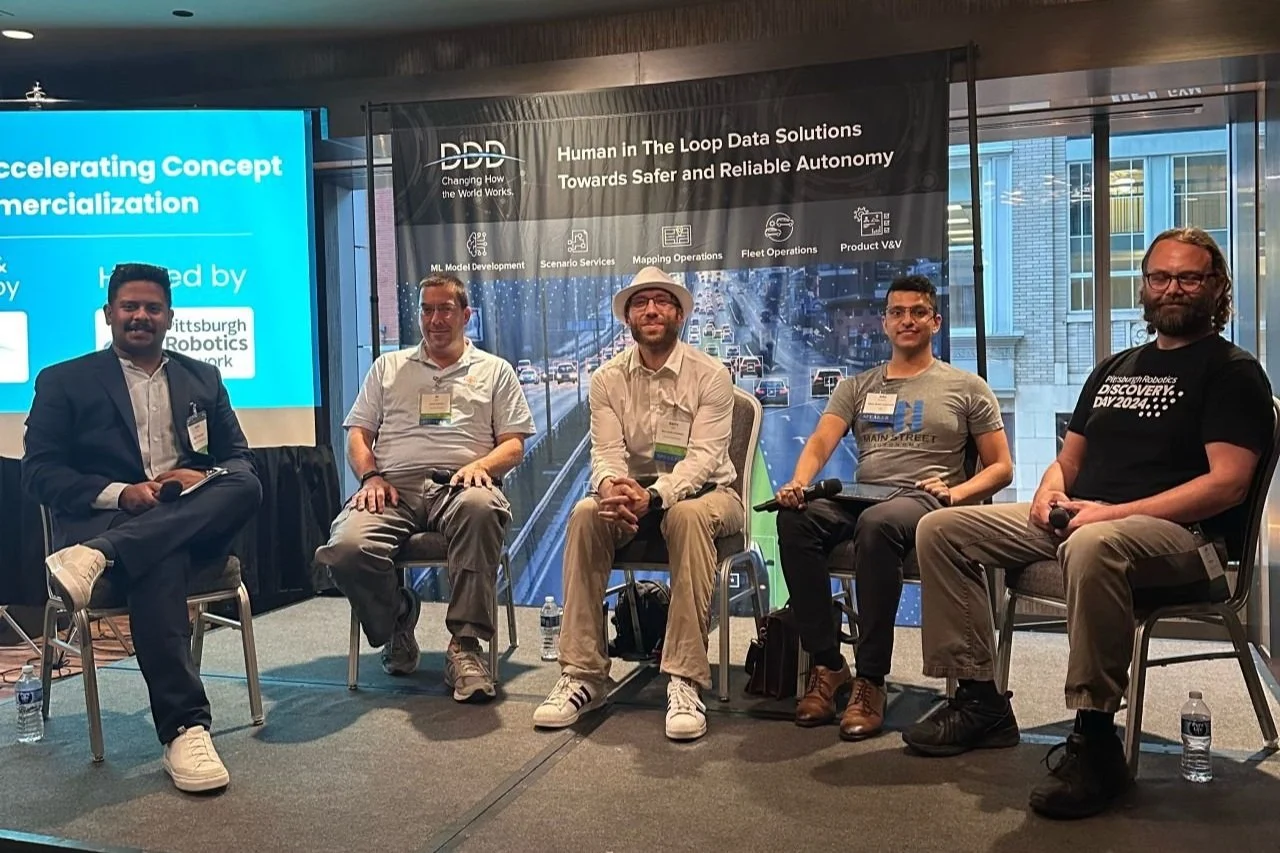Physical AI: Accelerating Concept to Commercialization
Post Event Briefings
Metro Detroit, MI | July 14 2025
Digital Divide Data (DDD) in collaboration with the Pittsburgh Robotics Network (PRN) hosted an evening full of robotics and physical AI conversations in Pittsburgh last month. The event was structured around a panel of experts from different Autonomous Systems’ areas and moderated by Sahil Potnis, VP of Product and Partnerships at DDD. The panel consisted of Al Biglan, Head of Robotics at Gecko Robotics; Barry Rabkin, Director of Marketing at Near Earth Autonomy; Jake Panikulam, CEO at Mainstreet Autonomy and Jeff Johnson, CTO at Mapless AI.
This event was all about how smart machines, like self-driving cars and robots, are starting to show up in everyday life. The term Physical AI just means using artificial intelligence in things that move or do physical work, not just computer programs. These machines are becoming more common in places like factories, warehouses, roads, and homes. As this technology grows, it is important to understand not just how it works, but how it fits into real life and helps people in meaningful ways.
The opening keynote was a message from Sameer Raina, DDD CEO and President, about making sure more people have access to specialized jobs in tech. DDD helps people from underrepresented communities get experience in technology by doing important work, like organizing and labeling data that AI systems use to learn. DDD’s mission is to make sure that the rise of AI creates opportunity for everyone, not just a few. This includes veterans, people from low-income backgrounds, and others who may not normally have a way into the tech world. The panel then talked about what it really takes to go from an idea or a concept to a working commercial product. One of the big takeaways was that trying to build everything yourself can slow you down. It is better to team up with others, focus on what you are best at, and get to the finish line faster and more efficiently. Collaboration is not a weakness, it is a smart strategy to build the right ecosystem.
Another big topic was data. A lot of companies collect more information than they know what to do with. Sometimes they stop tracking things too early, or they toss out data that turns out to be really useful later. When handled the right way, that data can help fix problems, improve safety, and make smarter decisions. In some cases, it can even point to issues that engineers didn’t realize were happening. The panel encourages everyone to think of data as a powerful tool that can make or break a project. The panel also talked about how important it is to think beyond the tech. Just building something cool is not enough. You have to understand who will use it, explain it clearly, and make sure it actually solves a problem. Good planning, strong partnerships, and real communication are just as important as the machine itself.
Looking to the future, everyone agreed that we will see more smart machines all around us. Not to replace people, but to work with them making things easier, safer, and more helpful in daily life. The big message was that for physical AI to succeed, it needs to be useful, trusted, and built with people in mind. With the right mindset, teamwork, and purpose, physical AI can help improve everyday life for all kinds of communities.
The diversity of the panel was very much visible and appreciated by the audience. We ended the evening with a common sentiment of organizing more of such panel talks! Onward to more of such exciting events.
Sahil Potnis, Ashanti Ketchmore | Digital Divide Data (DDD)








